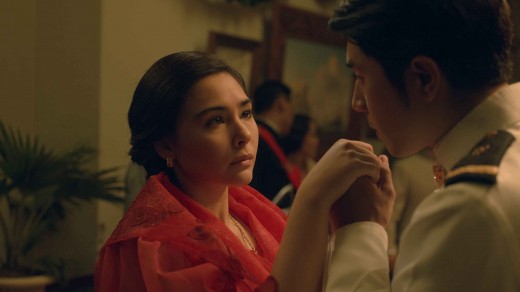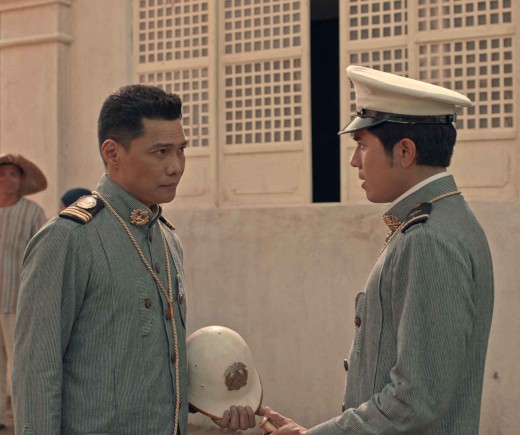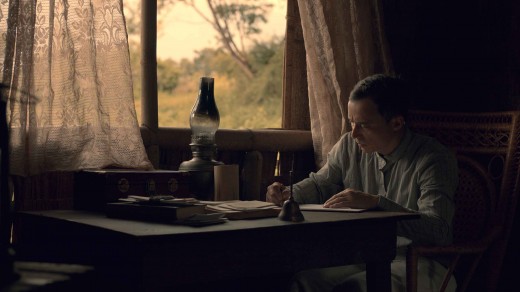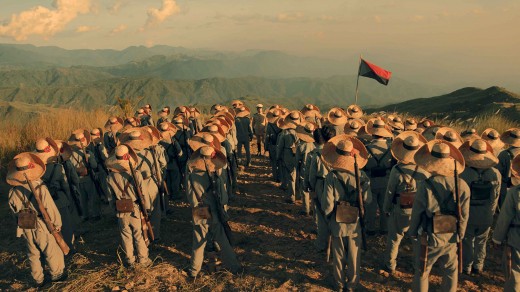REVIEW: “Goyo: Ang Batang Heneral” is Our History’s Hard-to-Swallow-Pill
Following the events of Heneral Luna and Angelito, Goyo opens with a sombre note as the voice of Apolinario Mabini (played by the talented Epy Quizon) drops his revelations. The film no longer concerns itself with the question of historical accuracy, but rather focuses on being a stark reflection of the fatal flaws the Filipino nation still suffers from today: blind idolatry and tribalism. As director Jerrold Tarog had stated before, Goyo: Ang Batang Heneral is a call to critical thinking–a film we need right now whether the public wants it or not.
The Good
Gregorio Del Pilar himself is one of our history’s most controversial characters: famous for his long string of lovers that rivals that of Jose Rizal’s, and for his stunt in Tirad Pass that remains debatable until today as to whether it was heroic or vain. Paulo Avelino broke my initial expectations when he delivered a performance that challenged our image of the titular historical figure. Gregorio Del Pilar was reduced to nothing more than a boy, crumbling from the weight of the responsibilities and expectations that came with his rank and achievements.
It was worth highlighting that throughout the film, Gregorio as a character was also defined by the company he keeps. Julian Del Pilar, his older brother, served as his enabler, the morally ambiguous wingman on his shoulder and a contributor to the swelling of his ego, and on his right sits Vicente Enriquez, the voice of reason and empathy. I also enjoyed how Joven was given his place in the story, a character insertion that reminded me of the classic kid’s TV show, Bayani.
Who was Gregorio Del Pilar? Was he a glorified butcher history should have buried or a hero deserving of praise and admiration? Goyo told his story in rich shades of grey: his sacrifice in Tirad Pass did not mean he was not to be held accountable for his misdeeds. Gregorio Del Pilar was a fierce soldier, a loyal general, a good leader to his men, a hero of Bulacan–yet at the same time, he is a murderer, a treacherous playboy and the worshipper of a false god. What I loved most about the film was that it didn’t try to be his absolution, it was merely stating how he must have seen his life through his own eyes. The movie did a spectacular job of relaying his internal struggles and mental state through the use of brilliant and repetitive imagery. If the flashbacks made you uncomfortable, then good, now you know what being constantly invaded by intrusive thoughts feels like. And in his fall, as the Americans stripped his corpse of his earthly possessions, we are strongly reminded that death will always be the great equalizer. Goyo in its essence was an epitaph: here lies neither a hero nor a villain, just a man.
In addition, I am especially fond of Mabini’s role in this movie because he is the brave representation of all the voices ignored in every problematic administration: the opposition that merely speaks the truth, and yet suffers from it. He was right: the revolution failed because of bad leadership, and the people were too consumed with in-fighting and putting idols on a pedestal. It asks us the question of had Mabini been listened to, do you think our country would be where it is now? Who will be the next to fall down and break like a worthless statue as Mabini predicted?
The Bad
Goyo prides itself on being the largest production in Philippine Cinema as of date, and it did not disappoint. Though worthy of praise, it’s still not free from technical and storytelling flaws that kind of bothered me while watching the film. The best I can say was that given the rest of the movie’s efforts in creating the sets, the laughable battle choreography is forgivable. No wonder we lost to the Americans, our men didn’t even need to get shot with bullets to die! Ignoring the horribly CGI-ed gunshots was a chore because I was trying so hard to concentrate on what’s going on. To be completely honest, I’d say they did a better job with Heneral Luna when it came to portraying war, which is funny because they even had a smaller budget back then! The final battle took around 20 or so minutes, and yet the special effects for this major sequence were highly neglected.
There was also a subpar effort in featuring Gregorio’s last love. I couldn’t help but feel like Gwen Zamora’s looks and acting chops were wasted in rushing the courtship between Remedios and Gregorio–if anything, it gave me the impression that Goyo was not really serious with her as he claims, that if he came back from Tirad he’ll probably set up shop in another town and run off with another girl as he always does. I was trying my best not to cringe at his lines because it gave me serious war flashbacks with men I knew personally who are guilty of the same habits–but then again, was that meant to show how good Goyo is with manipulating women? That he always knows what to say to win you over? If that was the goal, then I’d let it pass, otherwise, it would’ve been better if the audience was given more time to appreciate what it was that made Remedios special. She can’t be the only one who was initially resistant to Goyo’s charms: that medal still and will always belong to Poleng.

Contrary to other historical accounts that name Dolores, the film features Remedios as Gregorio’s lover instead of her sister.
Given the production’s limitations, these errors are completely understandable. Trying to fit years or even just months of documented history is a difficult feat. Goyo: Ang Batang Heneral is a think piece relevant to today’s societal ills and issues. It’s a wake-up call telling us to learn from our history, to remember our past errors as a nation and finally liberate ourselves from the things that divide us and weigh us down. For us to succeed, we should be of the thinking that there is no “you” or “them”, that we should stand together as one people–all serving a common principle. Remember who you are, as the movie tells us. Remember where you stand. Remember what you are living and fighting for.
Goyo: Ang Batang Heneral hits cinemas tomorrow, September 5. For the best viewing experience, director Jerrold Tarog reminds us to watch it in a Dolby-Atmos supported theatre.





















![Avengers: Infinity War [Credit: Marvel Studios]](https://www.flipgeeks.com/wp-content/uploads/2018/04/Infinity-War-110x70.jpg)















